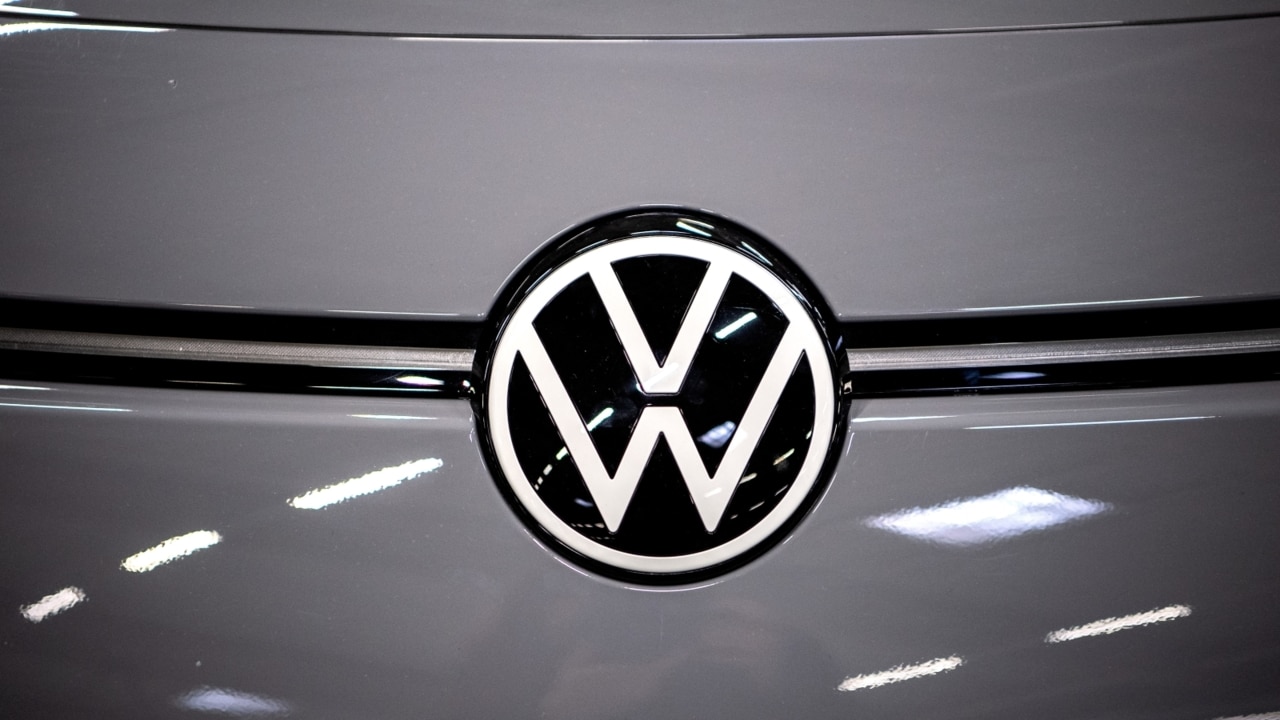Volkswagen admits name change was an early April fool's stunt
It’s one of the world’s best-known brands, although not always for a good reason, and its latest stunt looks to have backfired.

Motoring News
Don't miss out on the headlines from Motoring News. Followed categories will be added to My News.
Volkswagen is one of the biggest names in the automotive world with some of the world’s most iconic vehicles in its range.
So why would it mess with a name people have known for decades?
On Monday, Volkswagen of America “accidentally” posted a press release on its website announcing it would change its name to Voltswagen to promote its push into electric vehicles.
The statement was picked up by CNBC, who said a spokesperson declined to comment on the release and the story was also drew widespread coverage in other publications.
We know, 66 is an unusual age to change your name, but we’ve always been young at heart. Introducing Voltswagen. Similar to Volkswagen, but with a renewed focus on electric driving. Starting with our all-new, all-electric SUV the ID.4 - available today. #Voltswagen#ID4pic.twitter.com/pKQKlZDCQ7
— Voltswagen (@VW) March 30, 2021
The company has poured about $A113 billion into electric vehicles as part of the shift in the automotive world.
But Reuters was soon reporting sources saying the statement had been a marketing stunt
and the original article on CNBC was updated.
“Volkswagen initially said it was going to rename its US operations Voltswagen to signify its commitment to electrification of its fleet. The company confirmed (on) Tuesday that the announcement was an elaborate April fool’s joke,” CNBC reported.
VW pulls fake release and issues statement pic.twitter.com/Y7vPV6KFJT
— davidshepardson (@davidshepardson) March 30, 2021
Journalists who had tried to verify the original story were angered by the stunt and hit back at the company, saying it was not a joke but “deception”.
If a Volkswagen spox lied to you on background yesterday about this you should absolutely name them. It’s one thing to do a stunt, it’s another thing to just lie about it and publish a full press release with no nod to the bit.
— Sean O'Kane (@sokane1) March 30, 2021
you know, if I were a company famous for lying to regulators about emissions, I would avoid April Fools entirely https://t.co/ghZkaC7aYG
— Elizabeth Lopatto (@mslopatto) March 30, 2021
Dear Volkswagen: You lied to me. You lied to AP, CNBC, Reuters and various trade pubs. This was not a joke. It was deception. In case you hadn’t noticed, we have a misinformation problem in this country. Now you’re part of it. Why should anyone trust you again? https://t.co/1rcKT7p0u5
— Nathan Bomey (@NathanBomey) March 30, 2021
One account that mocks the failure of journalists also joined in the controversy.
— Journalists Posting Their Ls (@JournosPostLs) March 30, 2021
In Europe, where diesel and petrol vehicles are being phased out, Volkswagen sells the most electric cars, with electric versions of its Golf, the larger Passat, and the electric specific ID. 3 model.
The Audi e-Tron and Porsche Taycan could also be included in its numbers as Volkswagen owns both brands.
Sales for Volkswagen’s branded electric vehicles more than tripled last year compared to the year before.
In the US, where its local subsidiary claimed it would change its name, doesn’t sell any electric vehicles yet, but the upcoming ID. 4 will be sold there.
Volkswagen’s emissions scandal
In 2015, the German automaker was caught out deliberately cheating emissions tests by programming its vehicles with a secret operating mode for the purposes of testing.
The scandal that eventually became known as Dieselgate stemmed from an elaborate operation spanning several years in which Volkswagen had made false representations about the green credentials of its diesel vehicles through the installation of “defeat devices”.
The company specifically designed its cars to cheat emissions tests from 2009 until 2015, but was caught out after the US Environmental Protection Agency and other investigators found its cars emitted around 40 times more nitrogen oxide on the roads than when they were tested.
In 2019, the company was fined $125 million in Australia over the scandal.
That figure was a record for violations of local consumer law but it paled in comparison to the $US2.8 billion ($A3.68 billion) criminal fine a US judge ordered the company pay, on top of a $US1.5 billion ($A1.9 billion) civil penalty.
Originally published as Volkswagen admits name change was an early April fool's stunt


